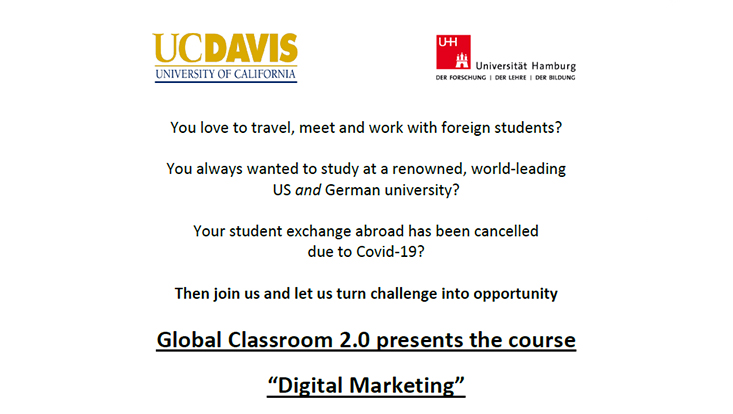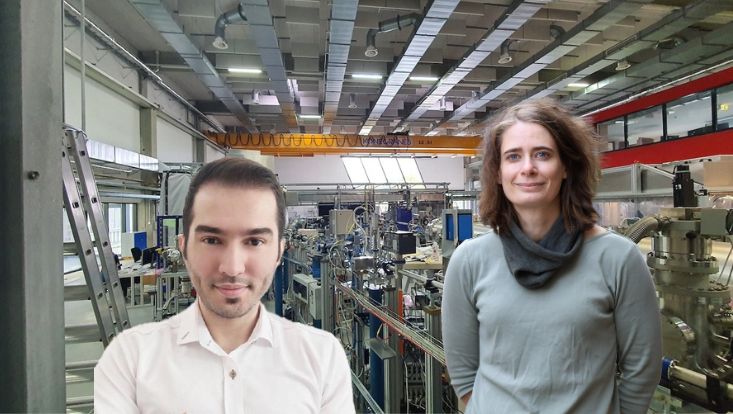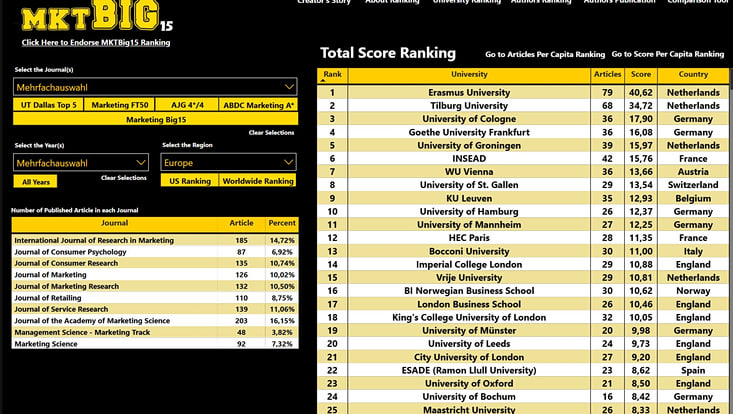Global Classroom 2.0: Overcoming COVID-19 through innovation
10 August 2020

Photo: BWL/UHH
Study abroad is an important and beloved part of studying at the Faculty of Business Administration.
But COVID-19 has put an end to many students’ travel plans and dreams of studying abroad. And with the often limited number of places available at partner universities – typically two to four a year for each faculty – there will be long waiting periods once travel restrictions are lifted again. At the moment, of course, it is unclear when that will be.
Waiting, then, does not seem to be a viable alternative. And our strategic partner, the University of California Davis, agrees. And so the Graduate School of Management at Davis and the Faculty of Business Administration, with the support of Universität Hamburg’s Department of International Affairs, have developed a completely new, future-oriented international course format: the Global Classroom 2.0.
This new course format enables students from different continents to learn
• in an international environment
• in internationally composed teams
• working in cross-cultural teams
• through digital media
• at a higher level of international integration
• at two world class institutions of higher education
• at a new scale.
Rather than the usual two to four exchange students per year, 40 students – 20 from each university – will come together in the course “Digital Marketing”. The students will learn digital work methods for the future in international and intercultural teams over nine different time zones.
Professors Ashwin Aravindakshan (UC Davis) and Kay Peters (Universität Hamburg) will run the course together.
Master students at the Faculty of Business Administration can register for the course on STINE between 1 and 8 September. Further information about the Global Classroom 2.0 and the course Digital Marketing [PDF] can be downloaded.
The course will be mutually acknowledged and accredited by both business schools, and students can choose to receive their credits locally or from the partnering institution, but credits count towards their local degrees.


